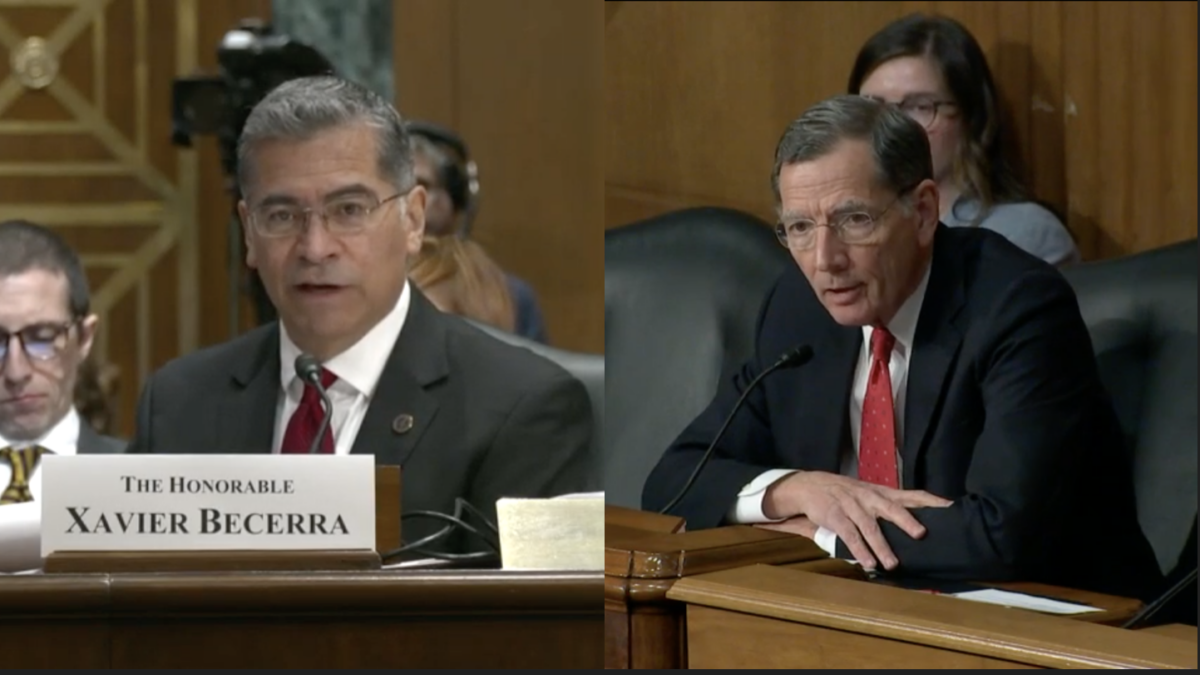
There’s a lot to quibble with in David Frum’s long essay on immigration just published in The Atlantic, from his odd assertion that Asian immigrants make Americans less self-destructive to his Malthusian fears of an America crowded with—wait for it—400 million people (which Lyman Stone responds to here).
Frum’s basic argument is that because liberals have abandoned all serious efforts at immigration reform, “fascists”—Trump and his ilk—have seized the issue as their own. That’s a problem, says Frum, because Trump has no real solutions and just wants to build a symbolic border wall, when what we really need is to build a system that reduces overall immigration levels by admitting more high-skilled workers and fewer low-skilled workers. We need to do this, Frum argues, because we’ve lost all sense of a unitary American identity and as a result we’re not very good at assimilating newcomers, even as they continue to arrive in large numbers.
That’s a pretty typical view on the Right, and it’s not without merit. But what it misses completely, and what Frum’s lengthy essay barely addresses, is that low-skilled workers are coming to America in large numbers because American employers want to hire them. That was true in the 19thcentury, when large numbers of Chinese immigrants were employed as railroad laborers, and it’s true today, as even larger numbers of illegal immigrants from Mexico and Central America find employment in farming, construction, and manufacturing.
In other words, market forces are at play. U.S. employers have a demand for cheap labor and plenty of foreign-born laborers are willing to meet it. As conservative as it might sound to say that we need more high-skilled immigrants and fewer low-skilled immigrants, it’s not really conservative at all. Federal bureaucrats are going to decide how many foreign-born workers U.S. industries need, and what their respective skill-sets should be? Usually, conservatives take the view that trying to centrally plan the U.S. economy is a utopian fantasy, doomed to fail. Why would a centrally-planned immigration system be any different?
Congress Has A Dismal History Of Trying To Control Immigration
If history is any guide, it won’t be. Responding to Frum in a short post at The Atlantic, Elizabeth Cohen chronicles the dismal history of U.S. efforts to shape demographics by tinkering with immigration, arguing that despite great efforts the federal government “hasn’t gotten what it wished for.” The 1924 Johnson-Reed Act was supposed to discourage immigration from European countries deemed racially inferior (Germany, Italy, Poland) and encourage immigrants from England. What happened instead was that immigration from Mexico and Latin American exploded to meet the demand for cheap labor previously filled by Germans, Italians, Poles and other Europeans.
Even when the 1924 law was deemed a failure and replaced by the 1965 Hart-Celler Act, which remains the basic framework for our current immigration system, lawmakers still created unintended consequences by introducing family reunification. “They thought family reunification would solidify existing immigrant demographics by encouraging people of European origin to sponsor other European-origin immigrants,” writes Cohen. “Their presumption made sense, but it was not borne out.”
Trump has inveighed against both family reunification and the diversity lottery (also a failed attempt to encourage European immigration), echoing conservative dissatisfaction with programs that admit immigrants without regard to their skills.
But who should decide what skills U.S. employers want and need? Congress? Some executive branch bureaucracy? It’s surprising how often conservatives seem to think so. The editors of National Review recently dinged Trump for suggesting he’d be open to higher levels of legal immigration if that’s what American companies wanted. “Businesses that find themselves unable to fill jobs with Americans and the existing flow of immigrants should consider raising wages to attract more of them,” write NR’s editors, as if the existing flow of legal immigrants has any relation to labor demands in the U.S. economy. Like Frum, the editors think Trump should only support legislation that reduces low-skilled immigration and increases high-skilled immigration, as if that’s a magic recipe for a perfect policy solution.
Market Forces, Not Government Decree, Should Shape Immigration
A far better approach would be to drop all this talk of more high-skilled workers and fewer low-skilled workers and recognize that the federal government is never going to know how many workers are needed in which industries. That doesn’t mean we surrender to the open borders progressives or abandon all efforts to control immigration, but it does mean that we need to get serious about building an immigration system that responds to market forces.
One way to do that is with some kind of guest worker program. After all, the vast majority of illegal immigrants, including the growing numbers of Central American families claiming asylum at the southern border, are coming here to work. Many of them have no intention of settling in the U.S. permanently, and there’s no reason we should demand that they do in order to work here for a stint and improve their families’ prospects back home.
Another approach would be some form of immigration federalism or state-based visa program, modeled on Canada’s visa system. Different parts of the country have different labor demands. A state like Texas will need different kinds of workers than a state like New York. A decentralized system is better-suited to meet these demands than a one-size-fits all policy handed down from Washington, D.C.
Whatever the policy solutions are, it’s time to for conservatives to stop pretending that government experts have all the answers to our immigration problems, that central planning is going to work this time, and that immigration reform is as simple as a building a wall and issuing more H1B visas.








